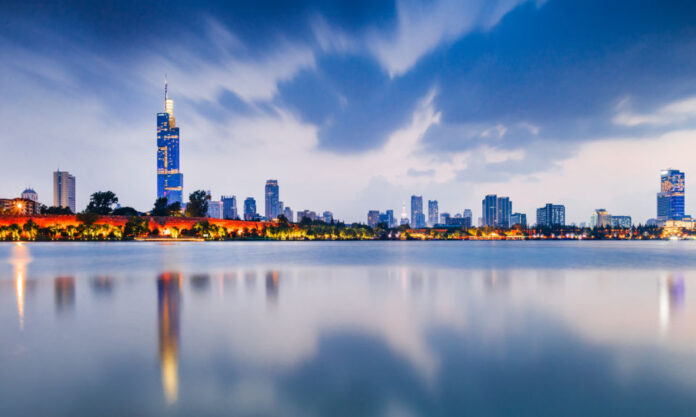For let no one tell you different. Nanjing is the rightful capital of China. Our city has enough experience to back up that claim; arguably China’s greatest architecture, past and present; a rich history of engagement with other countries; and as a former capital which defined much of modern China, exerting an influence even today.
This is the amazing metropolis which awaits you. And this publication makes no apologies for its enthusiasm over the “Southern Capital”. Here however, we won’t dwell on the canon of written word available online. Instead, a few select words unlikely to be found elsewhere…
Much that contributes to the rich tapestry of life comes down to contrast. Can we be truly happy if we have not experienced the depths of depression? Were there no scarlet, could we understand the joys of azure?
It’s like that with a city. Without the old, the new becomes irrelevant. No new stuff makes a place seem stuck in its past.
Somehow or another, and certainly not by design, Nanjing has managed to become the perfect combination of such contrasts.
Take Shanghai for example; top heavy with the new. Beijing? Top heavy with art? Guangzhou; top heavy with business. You get the idea.
In Nanjing, however, we have family values and traditional Confucius ethics, but they are challenged by a vibrant youth which seeks to expand its horizons.
Downtown in Xinjiekou, Nanjing has by some measures, the most densely-populated four blocks on the planet. But just 20 minutes away, oxygen-rich nature awaits, on Purple Mountain.
Then there is the fact that Nanjing served as capital of the Republic of China. It is this historical legacy which serves as a kind of backstop against the march of progress, reminding of another period when China was a global power, and providing for much of that contrast with today.
But (and here’s the secret), none of it too much weighted one way or another. It’s what keeps Nanjing in a kind of balance.
There are also those who believe Nanjing to be a centre of cosmological force where the lines of spiritualism and multiple dimensions converge. It’s a point of view with which this writer happens to agree. Something is definitely “up” with this city.
It’s not all positive, though, and neither could it be. Nanjing’s disadvantages, as even we shall confess, are numerous.
By and large, they stem from a local mentality that appears to lean too much on the city’s 2,500 years of history, mistakenly believing that ought to be sufficient to get Nanjing through the next couple of centuries.
It’s made Nanjingers very resistant to change. Years or decades can pass in Nanjing before local people will be accepting of new ways of doing things, together with the economic opportunities they present.
If any comparison be required, a glance at Suzhou is all that’s needed. The city’s proximity to Shanghai and the Suzhounese “can-do” attitude has propelled the city to having a GDP and population over 1.5 times that of our provincial capital.
As a result, many a business person will find Nanjing to be frustrating. With the ease of today’s high-speed trains, some choose even to commute to Shanghai (or Suzhou), returning to Nanjing for the quality of weekend life it offers.
But that’s what makes the Southern Capital such a rewarding place to live. As a great city in which to raise a family, only a stone’s throw away from anywhere in the city, is a plethora of National Parks and rural retreats, together with their accompanying fanciful historical tales and a cultural splendour beyond compare.
Speaking of Nanjing in the 16th century, Jesuit priest, Matteo Ricci, said, “This city is more than all other world cities”.
At this juncture, and with thanks to Matteo, we should probably simply say, “Welcome to Nanjing!”.









